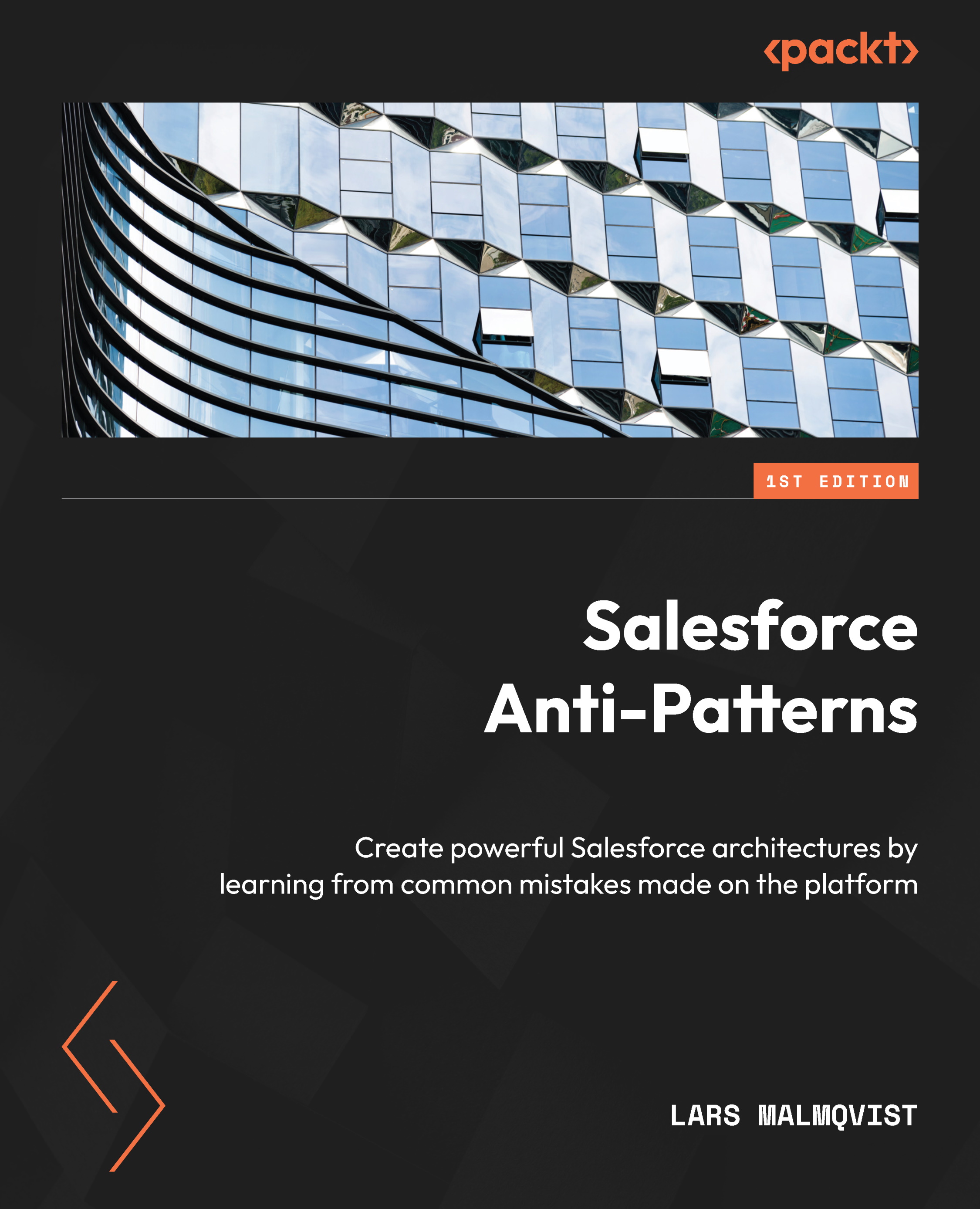Overview of this book
Salesforce Anti-Patterns teaches you to spot errors in Salesforce patterns that may seem like a good idea at first but end up costing you dearly. This book will enable Salesforce developers and architects to understand how ingenious Salesforce architectures can be created by studying anti-patterns and solutions to problems that can later lead to serious implementation issues. While there are several books on the market that start with the question, “How do I create great Salesforce architecture?” and proceed to a solution from there, this book instead starts by asking, “What tends to go wrong with Salesforce architectures?” and proceeds to a solution from there.
In this book, you’ll find out how to identify and mitigate anti-patterns in the technical domains of system architecture, data architecture, and security architecture, along with anti-patterns in the functional domain of solution architecture as well as for integration architecture. You’ll also learn about common anti-patterns affecting your Salesforce development process and governance and, finally, how to spot common problems in how architects communicate their solutions.
By the end of this Salesforce book, you’ll have gained the confidence to architect and communicate solutions on the Salesforce platform while dodging common mistakes.



 Free Chapter
Free Chapter
